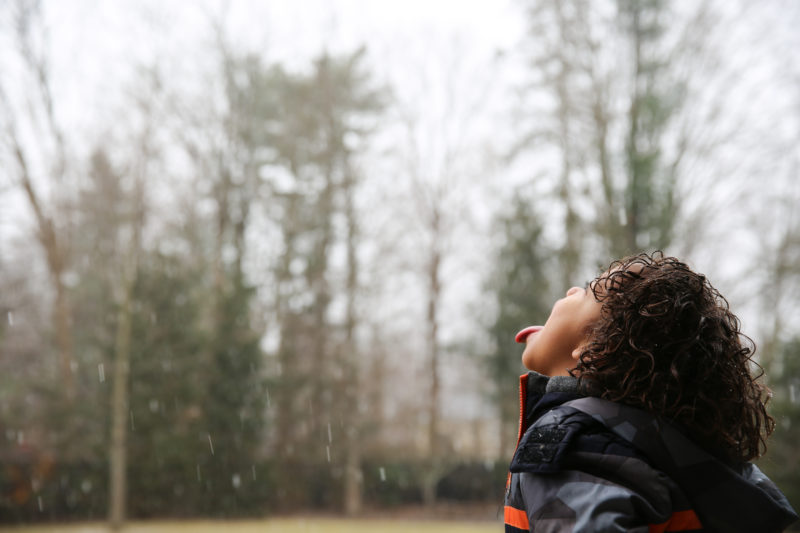For the past two weeks, the children have been immersed in learning from scientists about what their work entails and what makes their research meaningful and exciting. Our first guest was Richard Wiese, a meteorologist who has traveled the globe to investigate weather and climate change; he is also the host of the Emmy-winning PBS travel and adventure series Born to Explore.
Wiese explained to the children that weather is a language, an unspoken language like music or dance, and meteorology is the study of that language. You can learn to read the weather by observing the height and shape of the clouds, the direction of the wind, the ring around the moon at night that tells you it will rain or snow in the next 24 hours. He encouraged students to observe the sky and the clouds, and that they might know more about weather than they think. The children had many questions for him about weather: Where is it rainiest? Coldest? Hottest? (The windiest spot is not so far away—on Mount Washington in New Hampshire.) A fun fact about weather? The average raindrop falls at 7 miles per hour.
Wiese explained how studying meteorology and becoming a TV weatherman led to his interest in climate change. Humans are adding gases to Earth’s atmosphere that trap the heat of the Sun—the greenhouse effect. As Earth’s atmosphere warms up and the oceans absorb more heat, our weather is becoming more extreme, with destructive storms around the world. Plant and animal speciesare already on the move: alligators that now live in tropical Florida are moving into South and North Carolina. Researchers are looking for the northernmost alligator in the world as an indicator of climate change.
On his expeditions to study these changing ecosystems, Wiese said that his favorite experiences were observing animals in the wild, like elephants and cheetahs. He shared his top tips for exploring in dangerous places: to use your brain, and to listen and learn from the people who live there and have more experience with the environment. With a little determination, being a scientist can be a way to work in remote parts of the globe and meet inspiring and knowledgeable people from different cultures. You just need to have the courage to ask questions—people love to share what they know. And everywhere in the world, humans enjoy sharing a meal. Wiese said that some of his best memories are of sitting down with families and eating new types of food. You can be adventurous at home by trying different foods!
Richard Wiese’s final message to our students? Be curious! And embrace being part of a global community where everyone you meet has had unique and interesting experiences.
Here’s to a spring full of adventure as well as time to pause and look at the sky and clouds …
Maureen
